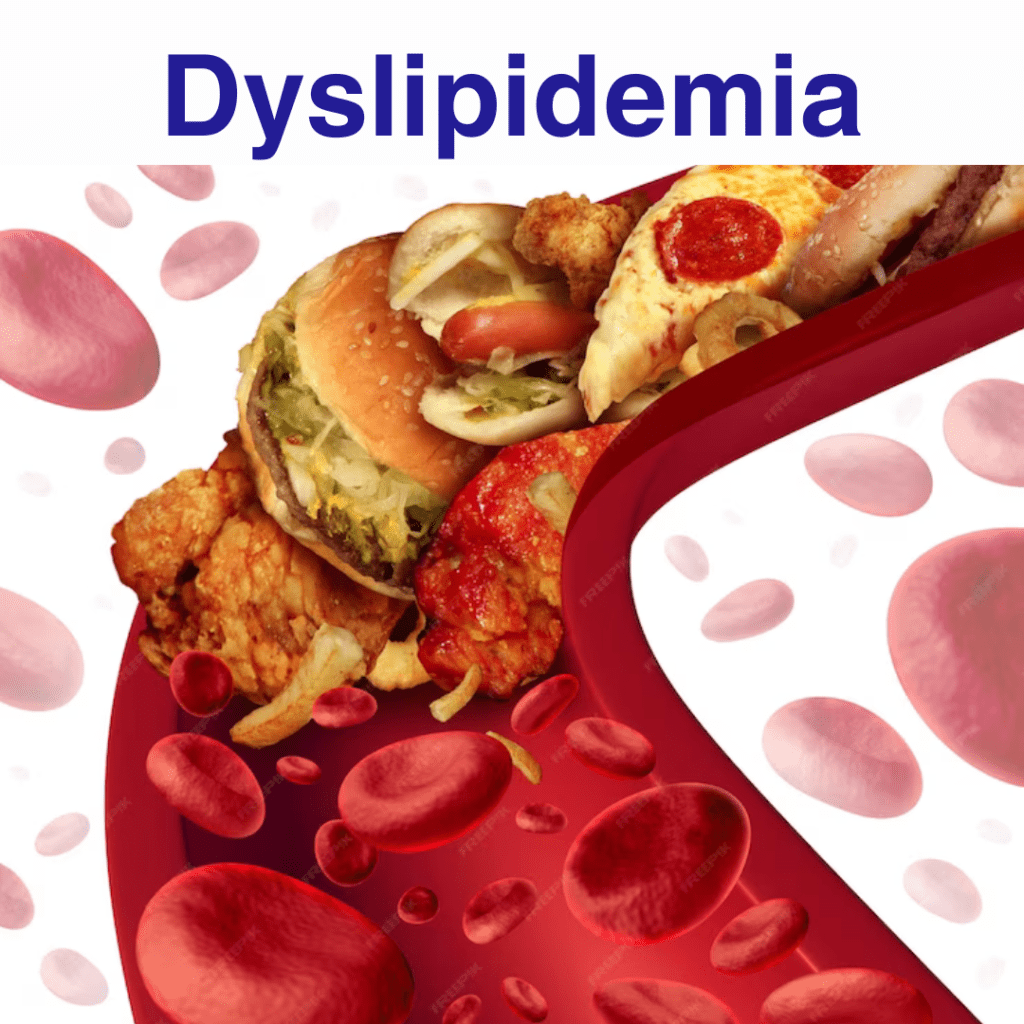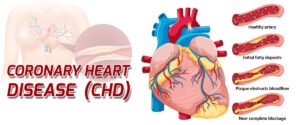Dyslipidemia
Dyslipidemia is a prevalent condition characterized by abnormal levels of lipids in the bloodstream. At Shanikrupa Heartcare, we aim to provide you with comprehensive insights into this condition, empowering you to make informed decisions about your health.
What is Dyslipidemia?
Dyslipidemia refers to an imbalance in lipid levels, including cholesterol and triglycerides, in the blood. This imbalance can lead to a variety of health issues, including cardiovascular diseases.
Causes of Dyslipidemia
There are several factors that can contribute to the development of dyslipidemia. These include genetics, diet, lifestyle choices, underlying medical conditions, and certain medications.
Types of Dyslipidemia
1. Hypercholesterolemia: Elevated levels of LDL cholesterol, often referred to as “bad” cholesterol.
2. Hypertriglyceridemia: Elevated levels of triglycerides in the blood.
3. Mixed dyslipidemia: A combination of high LDL cholesterol and triglycerides.
Risk Factors for Dyslipidemia
– Poor diet high in saturated fats and cholesterol
– Sedentary lifestyle
– Obesity
– Diabetes
– Smoking
– Family history of high cholesterol or cardiovascular disease
Symptoms of Dyslipidemia
It often does not cause noticeable symptoms until it leads to complications such as heart disease or stroke. However, some individuals may experience symptoms such as:
– Chest pain / Angina
– Fatigue
– Shortness of breath
– Numbness or weakness in the limbs
– Yellowish patches on the skin (xanthomas)
Read: Heart attack: life threatening to youngsters!
Diagnosis and Treatment
Diagnosing dyslipidemia typically involves a lipid profile blood test, which measures cholesterol and triglyceride levels. Treatment may include lifestyle changes such as dietary modifications and increased physical activity, as well as medications such as statins, fibrates, or cholesterol absorption inhibitors.
Prevention
– Eating a balanced diet rich in fruits, vegetables, whole grains, and lean proteins
– Limiting intake of saturated and trans fats, cholesterol, and refined sugars
– Engaging in regular physical activity
– Maintaining a healthy weight
– Avoiding smoking and excessive alcohol consumption.
Can Dyslipidemia be treated?
Yes, dyslipidemia can be treated.
Treatment typically involves a combination of lifestyle changes and medication.
Lifestyle modifications may include adopting a heart-healthy diet, engaging in regular physical activity, quitting smoking, and maintaining a healthy weight.
Medications such as statins, fibrates, cholesterol absorption inhibitors, or other lipid-lowering drugs. It also be prescribed to help manage lipid levels.
With proper management, many people with dyslipidemia can effectively control their lipid levels and reduce their risk of complications such as heart disease and stroke.
What is the difference between hyperlipidemia and high cholesterol?
Hyperlipidemia:
Hyperlipidemia is a broad term that encompasses elevated levels of lipids (fats) in the blood. This can include high levels of cholesterol, triglycerides, or both. Hyperlipidemia can be further categorized into specific types based on which lipid levels are elevated and to what extent.
High Cholesterol:
High cholesterol specifically refers to elevated levels of cholesterol in the blood. Cholesterol is a type of lipid that is essential for various bodily functions, but excessive levels can increase the risk of cardiovascular diseases such as heart attacks and strokes.
High cholesterol is often a component of hyperlipidemia, but it specifically relates to elevated levels of cholesterol rather than other types of lipids.




